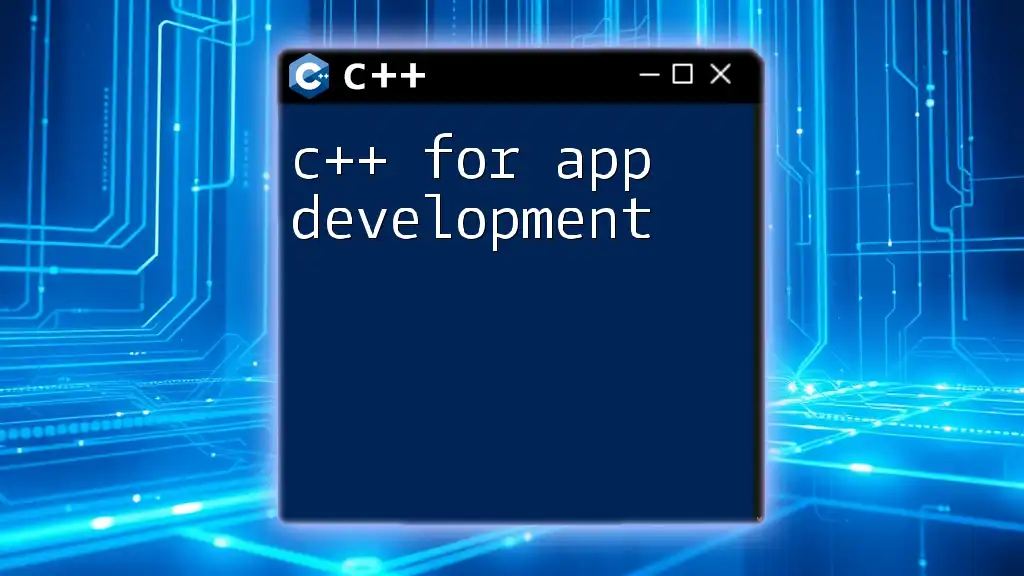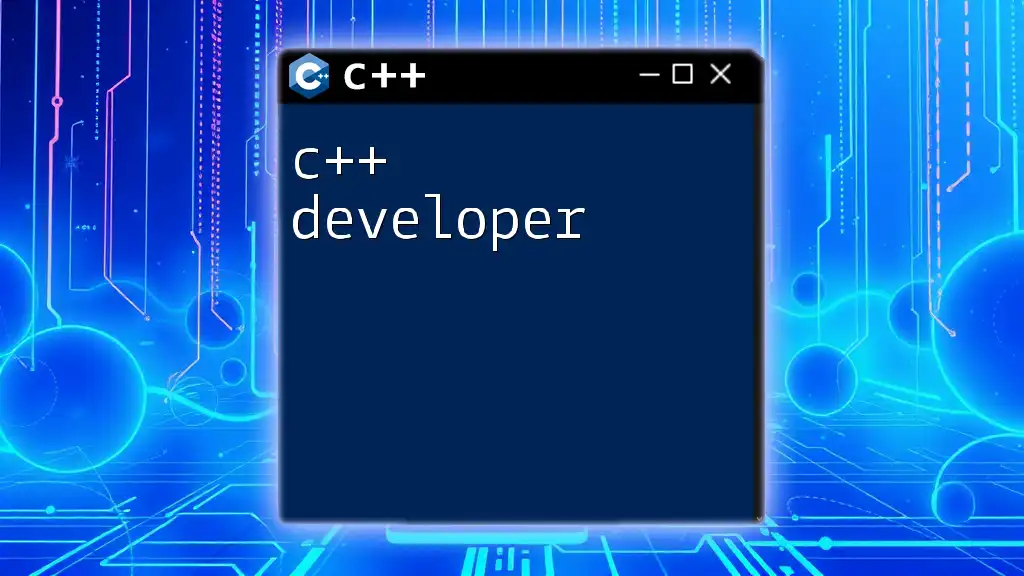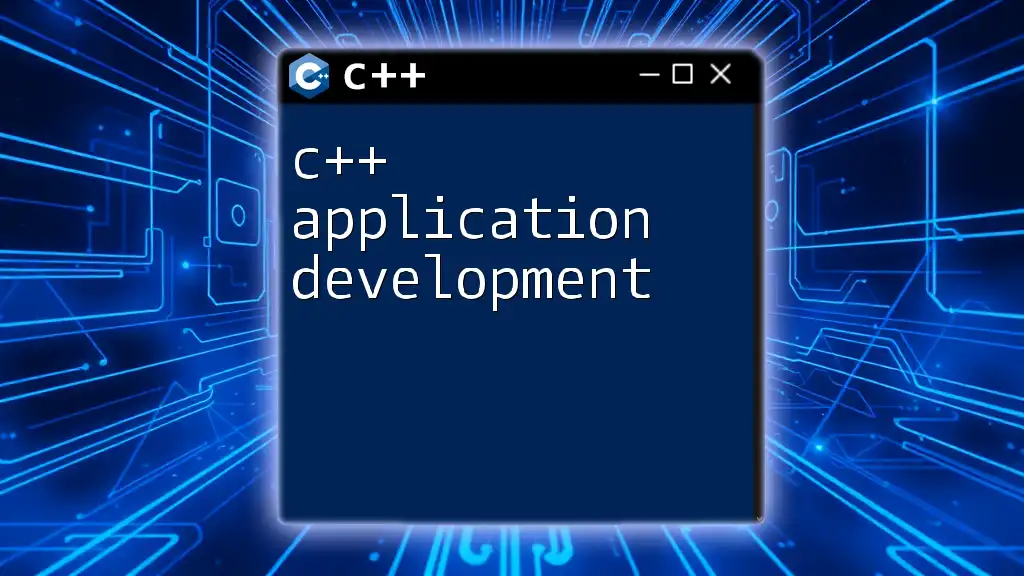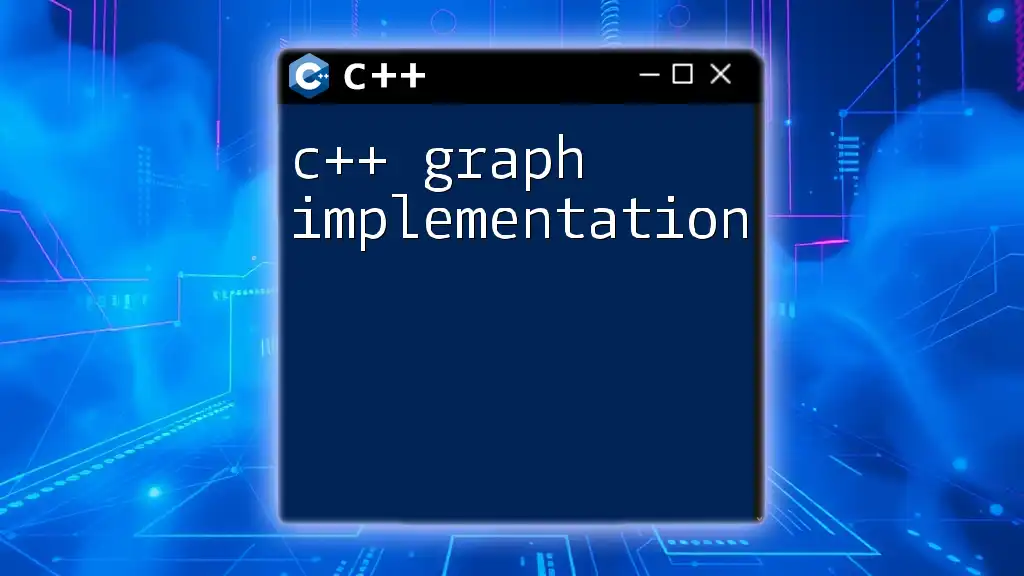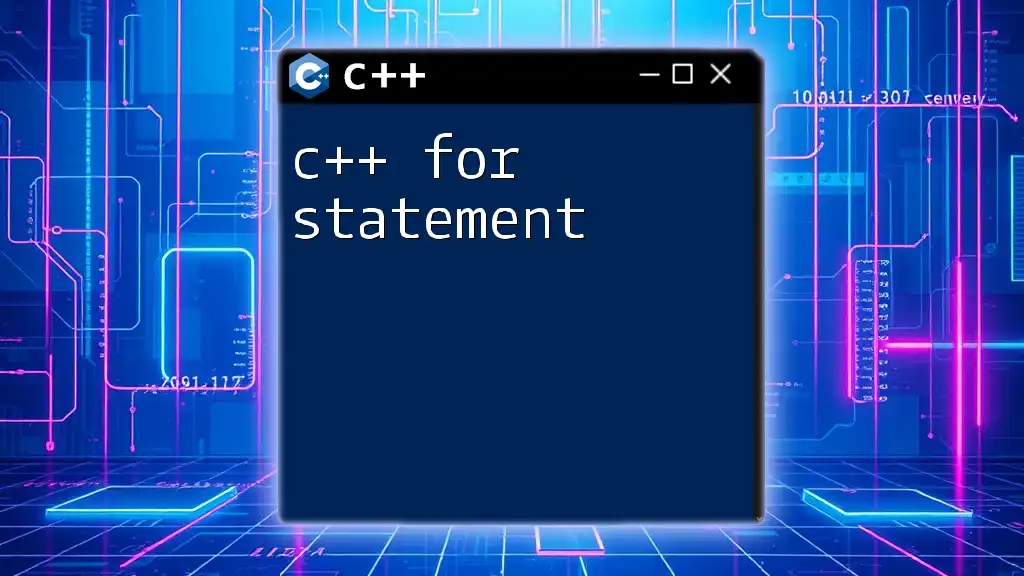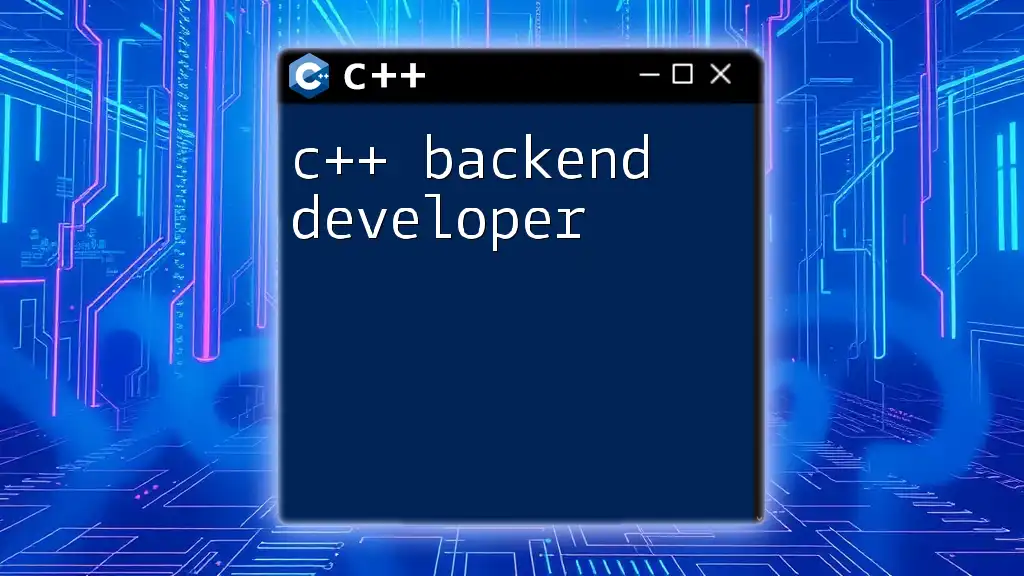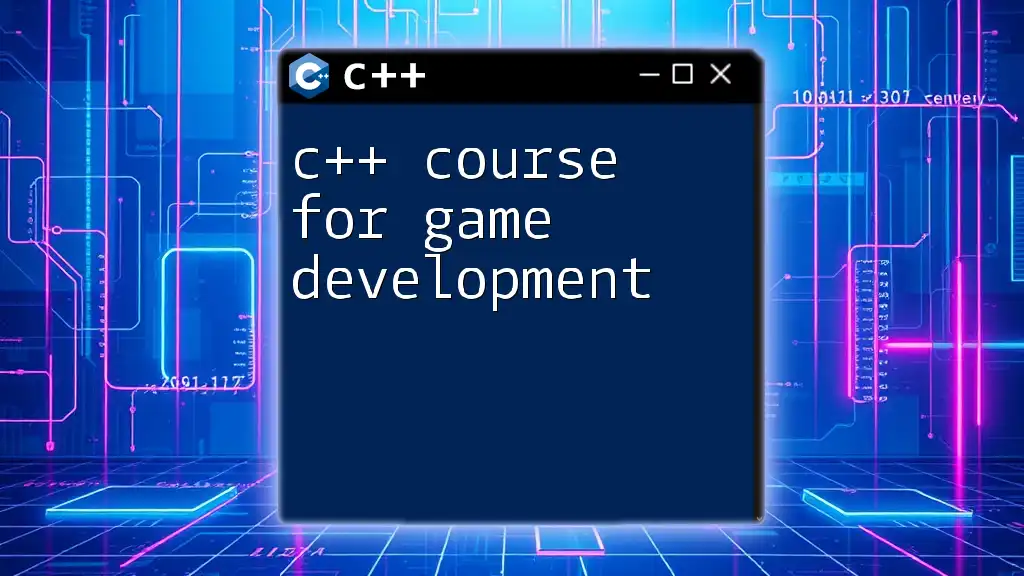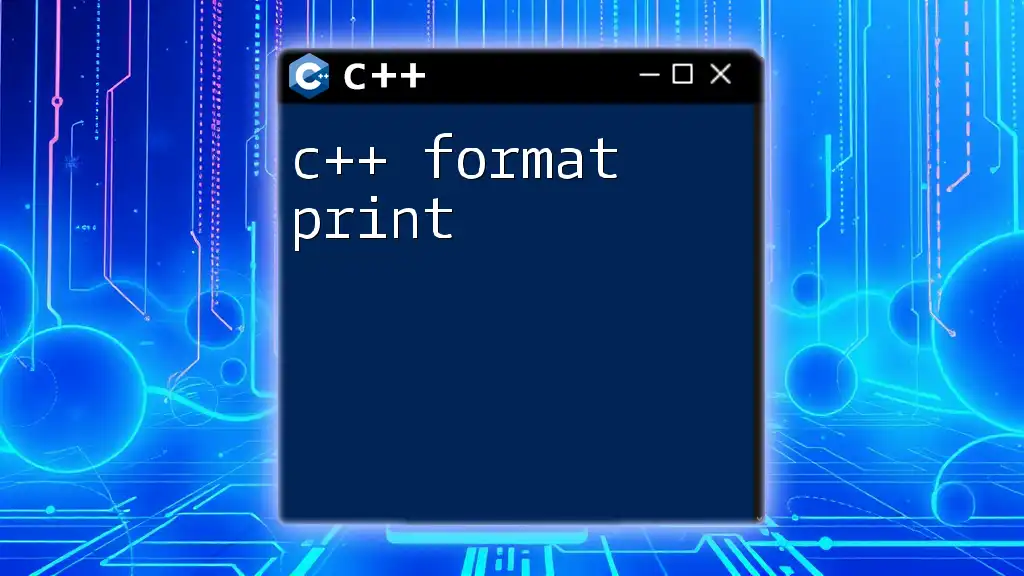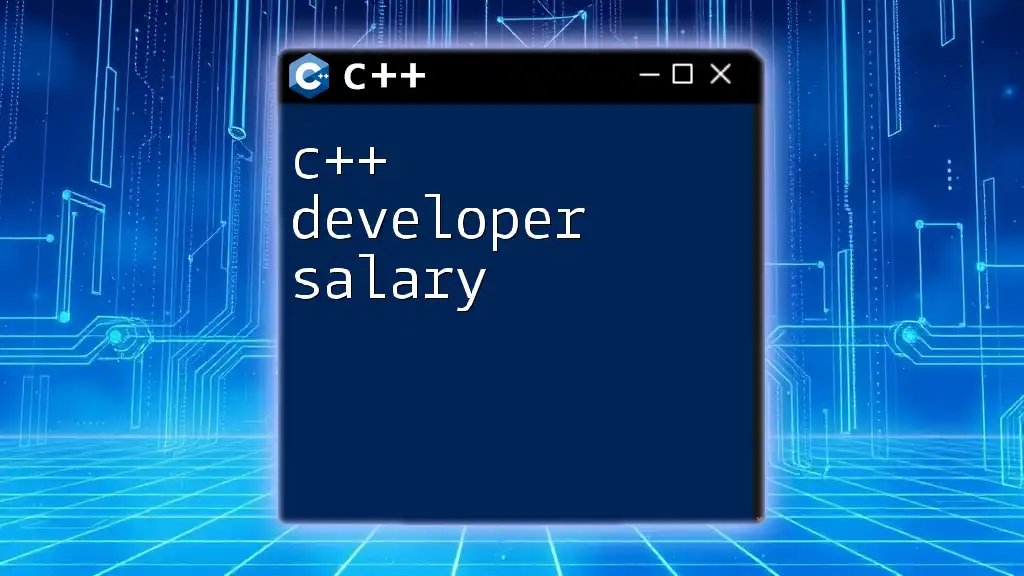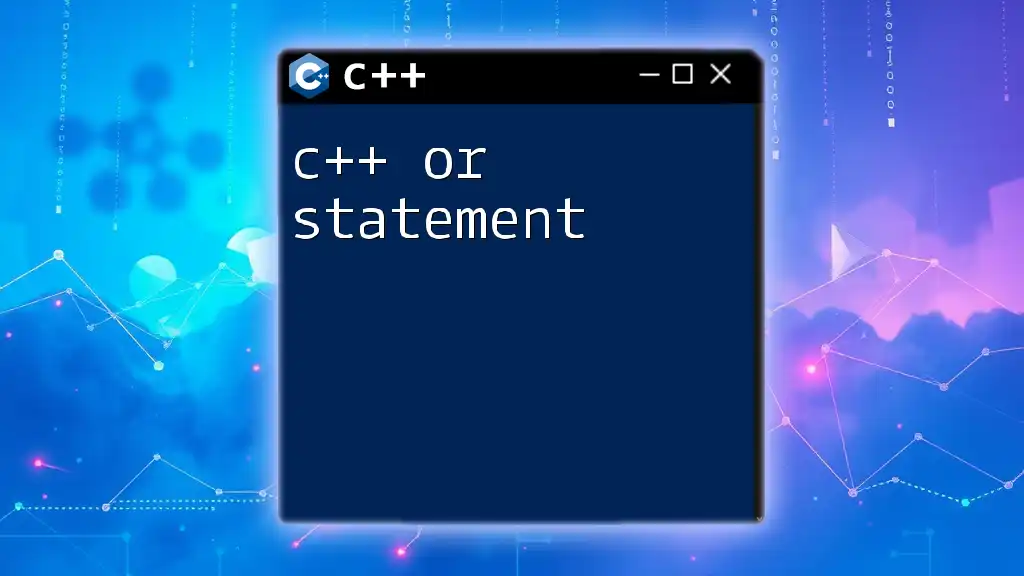C++ is a powerful programming language often used in app development for creating high-performance applications, and here’s a simple example demonstrating a basic "Hello, World!" program:
#include <iostream>
int main() {
std::cout << "Hello, World!" << std::endl;
return 0;
}
What is C++?
C++ is a powerful, mid-level programming language that builds on the foundation of the C programming language. It was developed in the late 1970s by Bjarne Stroustrup and has since become one of the most popular languages for application development, primarily due to its flexibility and performance.
Definition and History
The core idea behind C++ is to enhance C while maintaining its efficiency. The language incorporates object-oriented programming (OOP) features such as classes and inheritance, making it easier to manage and modularize complex software systems. Since its inception, C++ has evolved through multiple standards, leading to improved features and libraries that support modern app development.
Key Features of C++
C++ embodies several key features that make it suitable for a wide range of applications:
-
Object-Oriented Programming (OOP): C++ supports OOP principles, such as encapsulation, inheritance, and polymorphism, enabling developers to create reusable and modular code.
-
Memory Management: Unlike languages with built-in garbage collection, C++ gives you control over memory allocation and deallocation, which can lead to more efficient applications. This allows developers to optimize performance-critical sections of their code.
-
Standard Template Library (STL): C++ includes the STL, a powerful set of template-based classes and functions that provide data structures and algorithms like vectors, lists, and search functions.
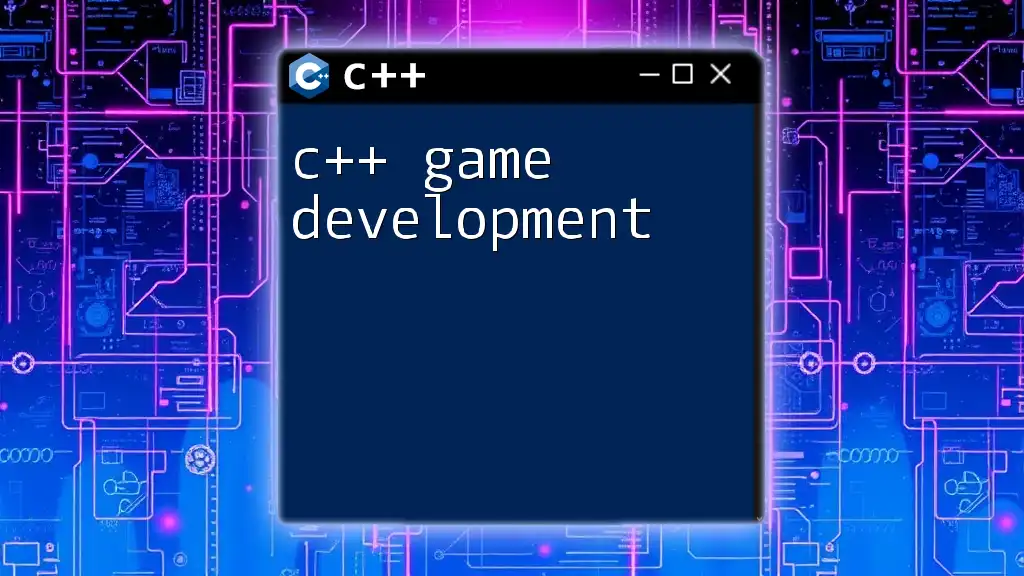
Why Choose C++ for App Development?
Performance and Efficiency
One of the standout characteristics of C++ is its performance. This language allows developers to write programs that can execute with a high degree of efficiency and speed. Unlike higher-level languages such as Java or Python, C++ provides low-level memory manipulation capabilities that are essential for performance-critical applications.
For instance, consider how a typical loop for summing an array looks in C++:
#include <iostream>
#include <vector>
int main() {
std::vector<int> numbers = {1, 2, 3, 4, 5};
int sum = 0;
for (int number : numbers) {
sum += number;
}
std::cout << "Sum: " << sum << std::endl;
return 0;
}
Cross-platform Capabilities
C++ stands out as a cross-platform language, allowing developers to write code that can run on various operating systems with minimal changes. The mantra "Write Once, Run Anywhere" is particularly applicable to C++, making it an ideal choice for software that needs to reach a broad audience.
Rich Libraries and Frameworks
C++ boasts a vast array of libraries and frameworks that simplify app development. Notable examples include:
-
Qt: Ideal for developing cross-platform applications with GUI features. It allows rapid prototyping and deployment.
-
Boost: A collection of libraries that extend the functionality of C++ and provide tools for common programming tasks.
Here's an example of setting up a simple GUI application using Qt:
#include <QApplication>
#include <QLabel>
int main(int argc, char *argv[]) {
QApplication app(argc, argv);
QLabel label("Hello, Qt!");
label.resize(200, 100);
label.show();
return app.exec();
}
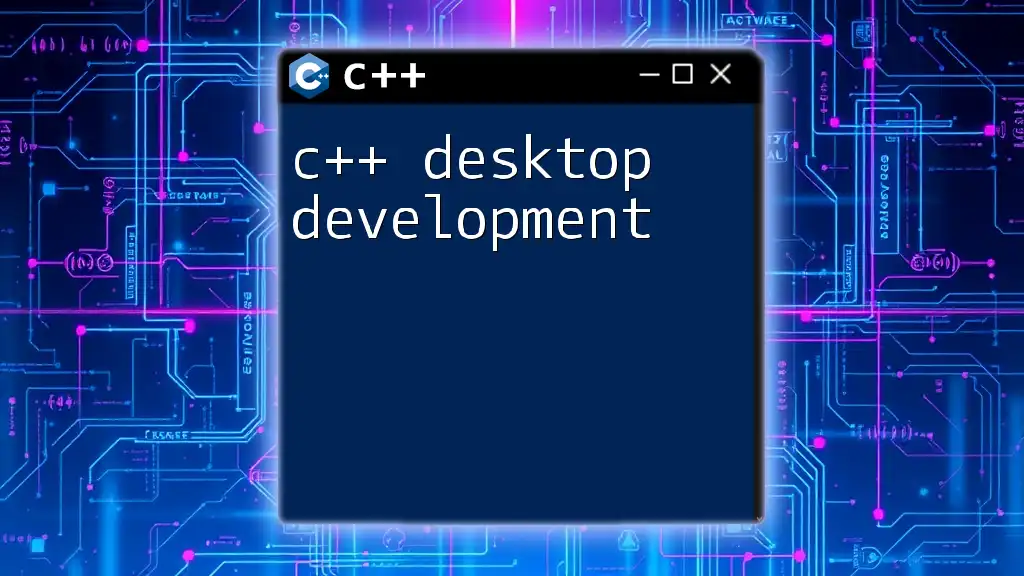
Getting Started with C++ for App Development
Setting Up Your Environment
To start developing C++ applications, set up a development environment that suits your needs. Recommended Integrated Development Environments (IDEs) include:
- Visual Studio: Offers robust debugging and extensive library support.
- Code::Blocks: Lightweight and customizable IDE for C++.
Additionally, installing a compiler such as GCC or Clang is crucial for compiling C++ code and running your applications.
Basic Syntax Overview
Understanding C++ syntax is vital for effective coding. Here's a simple "Hello, World!" example to illustrate fundamental syntax:
#include <iostream>
int main() {
std::cout << "Hello, World!" << std::endl;
return 0;
}
This program demonstrates the use of headers, the main function, and how to output text to the console.
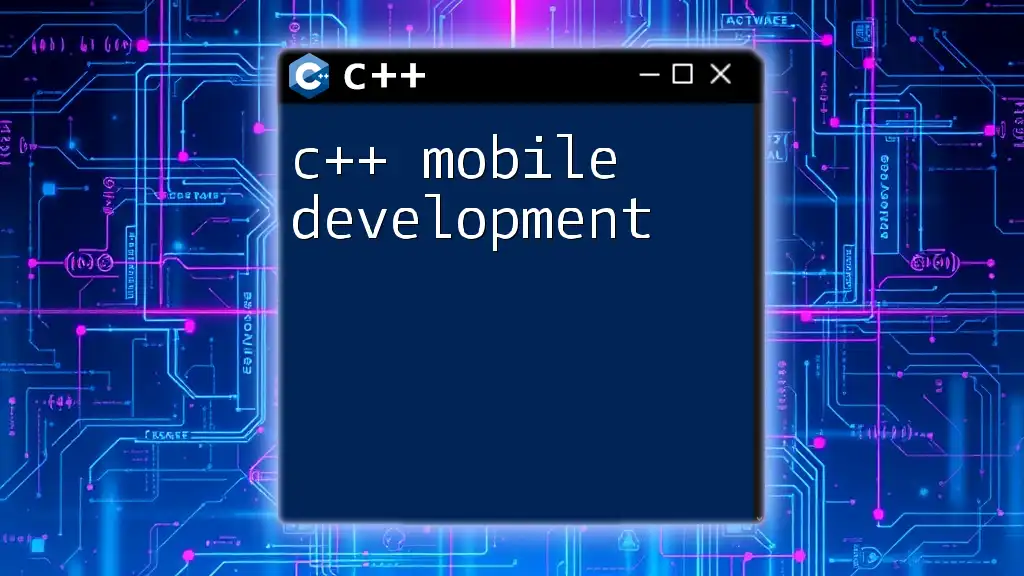
C++ Mobile App Development
Introduction to Mobile App Development with C++
Mobile app development is a growing field, and C++ plays a significant role in creating high-performance mobile applications. By leveraging C++, developers can build applications that require intensive processing, such as games or data-intensive software.
Frameworks for C++ Mobile App Development
Qt
Qt is one of the leading frameworks for cross-platform mobile app development using C++. It provides tools to develop both the frontend and backend of mobile apps. The framework includes features for accessing device hardware, setting up user interfaces, and managing application lifecycle.
An example of creating a basic mobile interface in Qt might look like this:
#include <QApplication>
#include <QPushButton>
int main(int argc, char *argv[]) {
QApplication app(argc, argv);
QPushButton button("Press Me");
button.resize(200, 100);
button.show();
return app.exec();
}
SDL (Simple DirectMedia Layer)
SDL is particularly favored in game development due to its ability to handle graphics, sound, and input methods. It is lightweight and provides an easy interface for managing multimedia content, making it a popular choice for mobile game development.
Cross-Platform Development with C++
With tools like CMake, developers can manage projects that target multiple platforms (iOS, Android) from the same codebase. This streamlines the development process and allows for easier updates and maintenance.
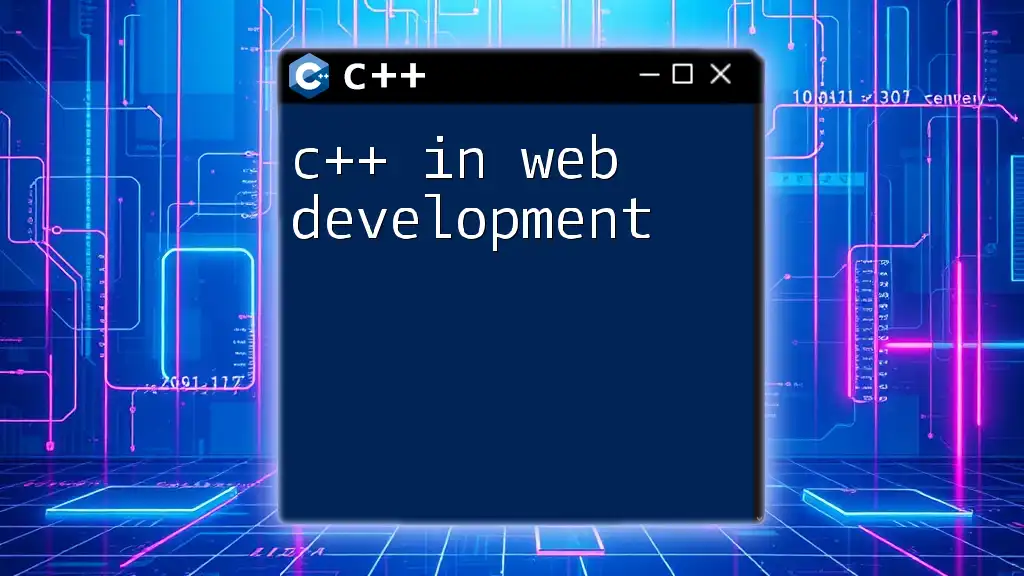
Designing User Interfaces in C++
Using Qt for C++ User Interfaces
Qt not only simplifies mobile app development but also adheres to the Model-View-Controller (MVC) pattern, helping developers maintain a clean separation of concerns in their applications. This design pattern ensures that the application is easier to manage, test, and extend.
Integrating C++ with Other Technologies
To achieve maximum performance and leverage existing libraries, developers often need to integrate C++ code with other technologies. For Android apps, this can involve combining C++ with Java or Kotlin using the Java Native Interface (JNI). You can call C++ functions from Java, allowing flexibility in leveraging existing code while maintaining performance.
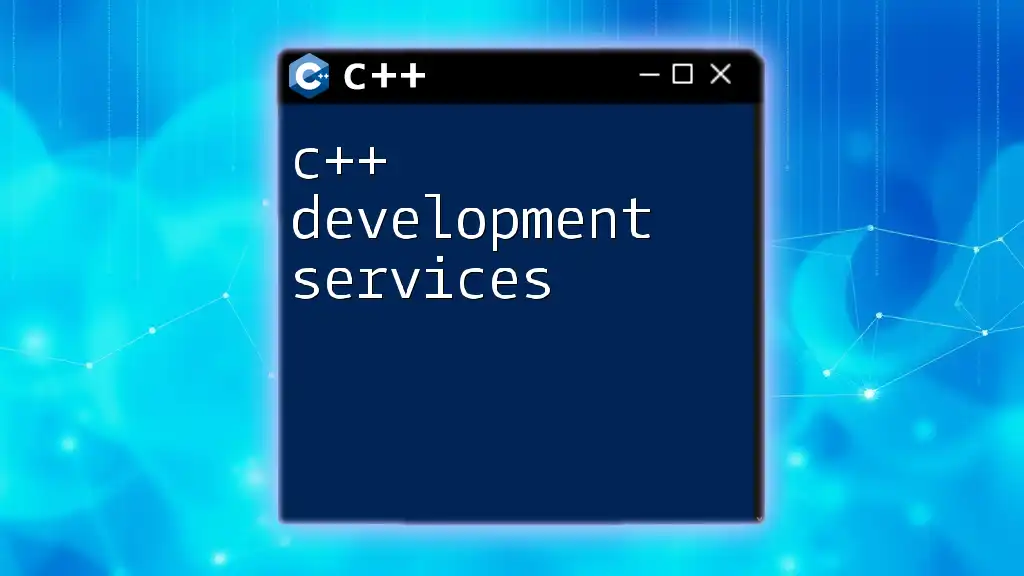
Game Development with C++
Why C++ Dominates Game Development
C++ holds a prestigious place in game development due to its ability to handle real-time simulations, low-level graphics manipulation, and complex physics calculations. Games like "Call of Duty" and "World of Warcraft" have large portions of their code written in C++, making it a go-to language for top-tier gaming companies.
Game Development Frameworks
Frameworks like Unreal Engine and Cocos2d further facilitate game development in C++. Unreal Engine, for example, is known for its rich feature set and performance, offering stunning graphics and robust game mechanics. Here's a small snippet demonstrating character movement in Unreal Engine:
void AMyCharacter::MoveForward(float Value) {
if (Value != 0.0f) {
AddMovementInput(GetActorForwardVector(), Value);
}
}
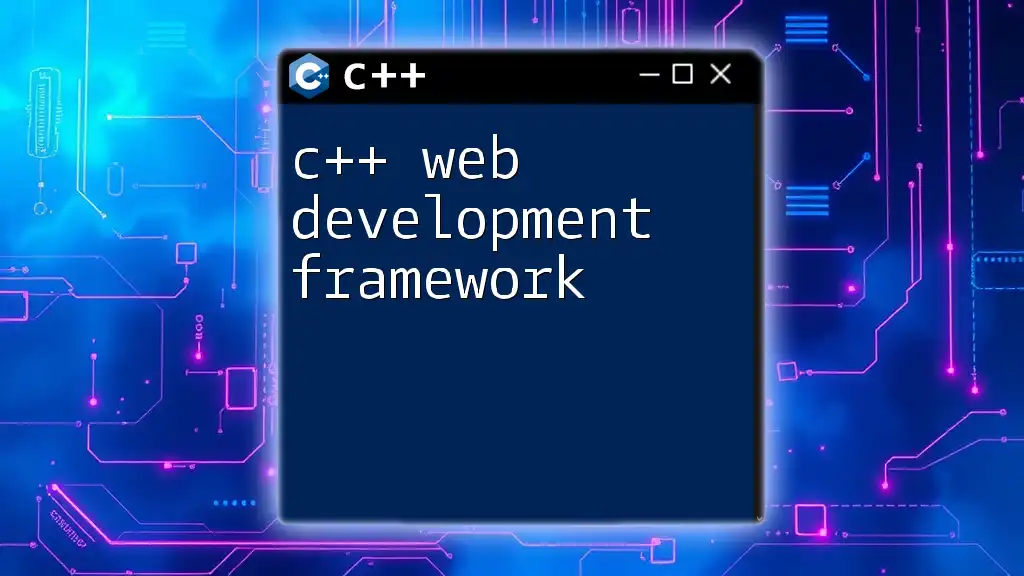
Challenges in C++ App Development
Common Pitfalls
While C++ offers several advantages, it also poses unique challenges. Memory management is a frequent source of errors, and potential memory leaks can cripple an application. Developers must use tools such as smart pointers and RAII (Resource Acquisition Is Initialization) techniques to manage memory effectively.
Debugging C++ Applications
Effective debugging is crucial for maintaining high-quality applications. Tools like GDB (GNU Debugger) enable developers to set breakpoints, inspect variables, and step through the execution of their code, making it easier to diagnose issues.
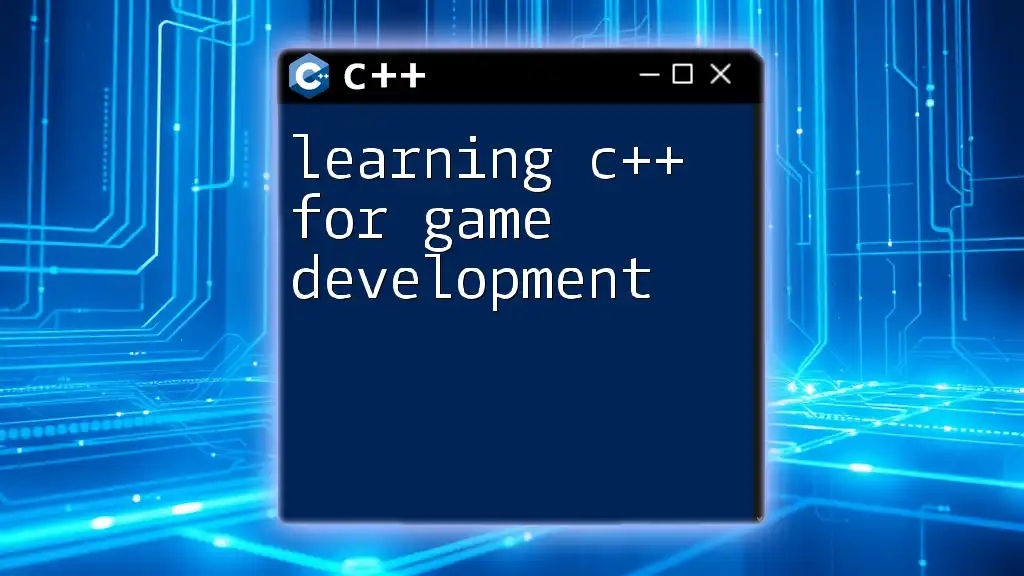
Conclusion
C++ offers a robust and versatile platform for app development, making it possible to create high-quality applications that are efficient and portable. By leveraging its rich ecosystem of libraries and frameworks, developers can take full advantage of C++’s capabilities for desktop and mobile applications alike. Whether you are a beginner or an experienced programmer, C++ remains a valuable skill in today's app development landscape.
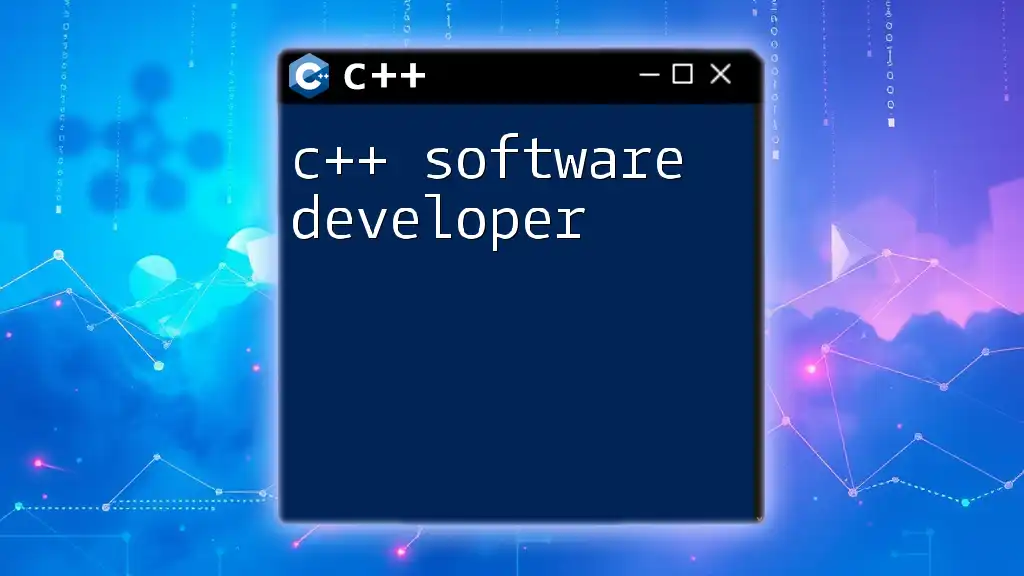
Additional Resources
To further enhance your knowledge and skills in C++ for app development, consider exploring the following resources:
- Books: "The C++ Programming Language" by Bjarne Stroustrup, "Effective C++" by Scott Meyers.
- Online courses: Platforms like Coursera and Udacity.
- Community forums: Join C++ forums on Stack Overflow and Reddit for networking and support.
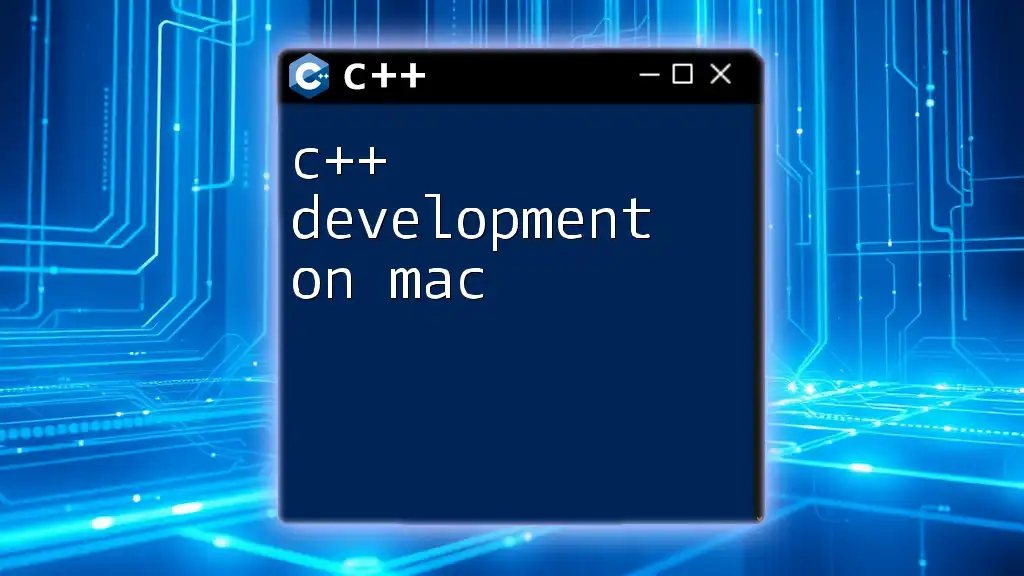
FAQs
-
What type of applications can I develop using C++? C++ is suitable for creating desktop applications, mobile apps, and games.
-
Is C++ hard to learn for beginners? While C++ has a steeper learning curve compared to other languages, its efficiency and adaptability make it worth the effort.
-
Can I use C++ along with other languages? Yes, C++ can be integrated with other languages like Python, Java, and C# to enhance functionality and performance.

